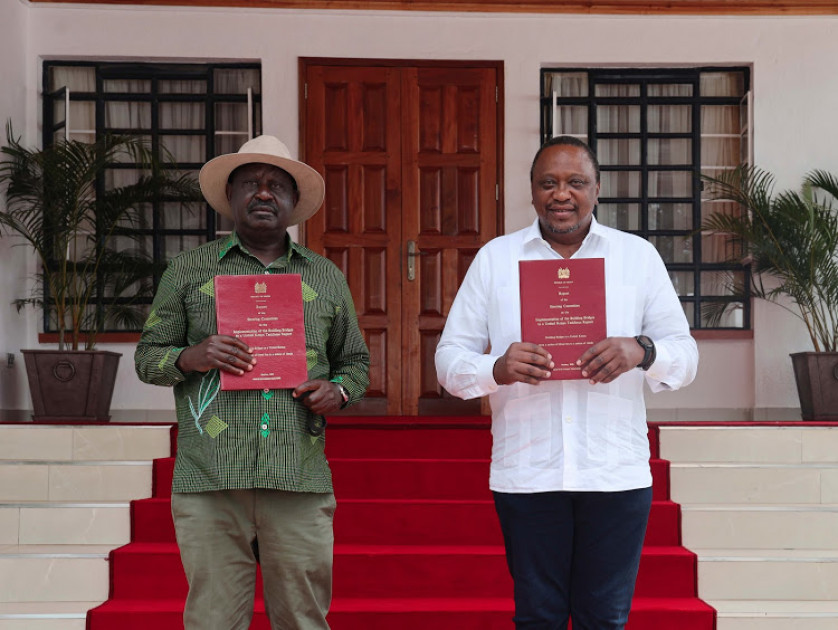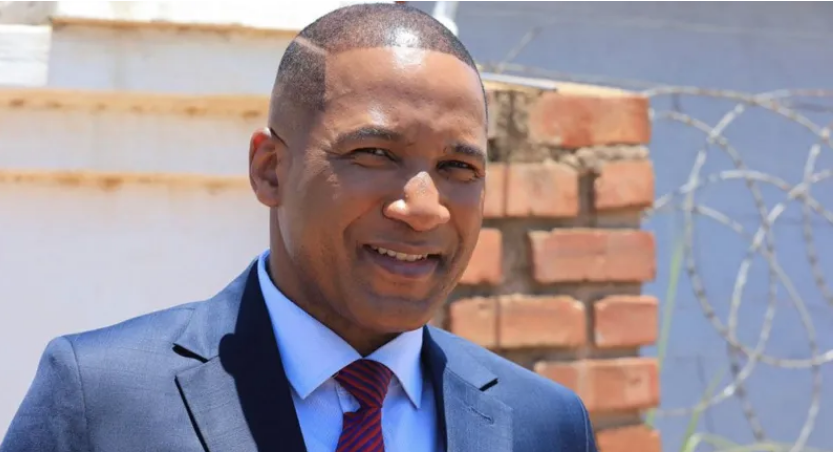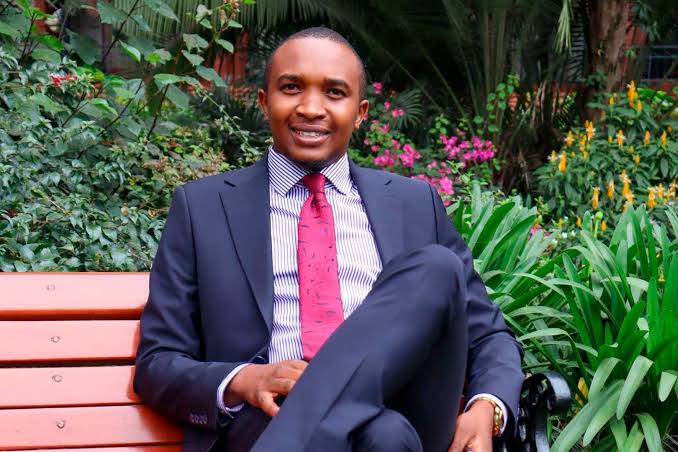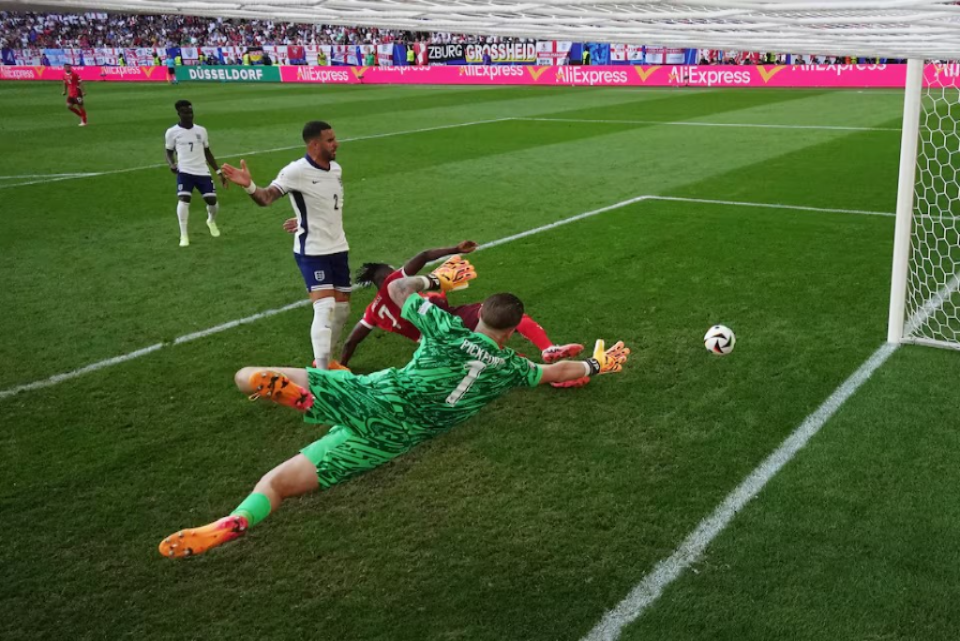It was billed by President Uhuru Kenyatta and former Prime Minister Raila Odinga as the remedy to the country’s division politics and chaotic presidential elections which rock the county after every five years, sometimes leading to deaths and destruction of properties as backers of opposing camps fight.
But the Building Bridges Initiative (BBI) process, which is today subjected to a landmark ruling happening that the Supreme Court, turned into a political and legal battleground with political podiums and courtrooms turning into theatres of play after the initiative suffered a major blow after both the High Court and Court of Appeal in rulings which had far-reaching effects, nullified it on grounds that proponents abused the law.
Aggrieved, the President, whose immunity was tinkered with, particularly after Court of Appeal Judges ruled that he could be held culpable for abusing the law by acting in excess of his powers when he initiated the process of amending the Constitution, he with the backing of Attorney-General Paul Kihara Kariuki rushed to challenge the outcome which wounded him and Raila politically.
Also Read:
The Independent Electoral and Boundaries Commission (IEBC) also joined in the appeal, protesting the decisions of its constitutional composition, quorum and mandate in the handling of the Constitution of Kenya Amendment Bill, 2020 which among other things proposed expansion of the executive and overturning the winner-take-all electoral system blamed for frequent explosions of poll-related violence, increase number of constituencies to ensure fare representations and increase of county resources.

BBI’s supporters argued the project, which Deputy President Wiliam Ruto opposed on grounds that it was a deliberate plot to frustrate his presidential ambitions in favour of Raila, would improve fairness in the electoral system and help curb unrest, but critics warn it could undermine the country’s democratic institutions while creating more opportunities for patronage and corruption.
But, the seven-judge bench of the Court of Appeal, in August last year, disappointed the president when they declared the initiative, which had been endorsed by county assemblies and Parliament, unconstitutional, and went on to cite Uhuru for falling short of the leadership and integrity law in a move that left him vulnerable for possible impeachment.
“The biggest disappointment is what the people have lost. And what the courts have done. This is not my baby. This is the people’s baby. If those things we envisaged did not happen now they will happen in the future. What is important is whether the issues are just and fair. Our interest is to build a peaceful, secure, stable and prosperous nation,” Uhuru would later react during a conversation with senior editors at State House.
Today, a 7-judge bench that heard the case comprising Justices Martha Koome (CJ), Philomena Mwilu (DCJ), Smokin Wanjala, Njoki Ndung’u, Ibrahim Mohammed, Isaac Lenaola and William Ouko is delivering a ruling on the process which would shake up the country’s political system.
In the Supreme Court appeal, IEBC was unhappy with the court’s decision on the constitutional composition, quorum and mandate of the IEBC while Kariuk’s appeal was on eight grounds among them the court’s finding that the basic structure doctrine is applicable in Kenya.
The AG challenged the court’s decision that civil proceedings can be instituted against the President or an official performing the functions of the office of the President during their tenure of office in respect of anything done or not done contrary to the Constitution of Kenya 2010.
They ruled that the BBI constitutional committee, a body created by the president, was illegal, adding that Mr Kenyatta had failed the leadership and integrity test and warned that the president could be sued in his personal capacity.
The appeal also challenged the court’s decision that the president does not have the authority under the constitution to initiate changes to the Constitution and that a constitutional amendment can only be initiated by Parliament through a Parliamentary initiative under Article 256 or through a popular initiative in Article 257 of the Constitution.
While issuing their ruling, five High Court judges- Justice Joel Ngugi, Justice George Odunga, Justice Jairus Ngaah, Justice Teresia Matheka, and Justice Chacha Mwita, in a scathing ruling delivered in May last year, blocked the government-backed plan to make fundamental changes to the country’s constitution, arguing that it was irregular, illegal and unconstitutional because Uhuru had violated the constitution by initiating a process which ought to have been started by ordinary citizens.
The judges rubbished the five million votes collected from citizens by the BBI task force to support the referendum push and ruled that the initiative was not started, or led, by citizens, and that only the people, not the government, can initiate and conduct a process to amend the constitution through a referendum.
The BBI bill had been passed by county assemblies, National Assembly and the Senate before Thursday’s court ruling and was awaiting presidential assent, after which Kenyans would have headed to a referendum before this election.
The proponents of BBI went to the Court of Appeal where the majority of the judges upheld the illegality of the constitutional review process, saying the BBI Bill was unconstitutional and usurped the people’s sovereign power.
The judges also upheld the High Court’s finding that the President has no authority to promote amendment of the Constitution through a popular Initiative and that he can be sued with respect to his actions or omissions in the Constitution.
But “the president does not have the power under the constitution to initiate constitutional amendments. A constitutional amendment can only be initiated by Parliament (…) or by popular initiative,” said presiding judge Daniel Musinga at the conclusion of the more than ten hours of reading of the ruling.
The BBI process in 2018, whereby, following two bruising and bare-knuckled presidential competitions where one of them almost left the country in shambles, Uhuru and Raila unexpectedly shook hands on March 9, 2018, which thrust the country into a constitutional moment that was previously unthinkable.
Uhuru had defeated Raila twice, in 2013 and in 2017 but it was the latter that forced a constitutional change after the former Prime Minister not only rejected the outcome of an acrimonious vote in August 2017 but also refused to participate in a repeat election as per the Supreme Court orders leading to violence the left scores dead.
- Ukraine claims killing thousands of Russian troops
- $72M per aircraft: Why is “Tiger” Attack helicopter so expensive?
- Meet The JAS 39 Gripen: The Fighter Jet NATO Loves (And Russia Hates)
- Comparison Between Ukraine and Russia’s militaries

WANT TO HIRE WEBSITE DESIGNER CONTACT US @Kalda-Tech Systems , See a sample of our work
But after the secret talks, the two rivals caught the country and their confidants off-guard they stood side by side at the feet of Harambee House that afternoon for the “golden handshake” that calmed the political storm and gave birth to Building Bridges Initiative (BBI), a national cohesion project that is anchoring the review of the 2010 supreme law.
The Handshake, which according to the two partners was necessitated by political violence triggered by the refusal of Raila and his supporters to accept the outcome of the repeat presidential elections over rigging claims, and its subsequent activities which included the Building Bridges Initiative are shaping the August 9 poll.









